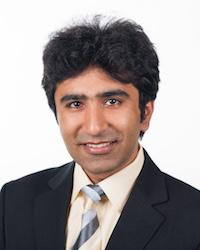ECE Assistant Professor Tushar Krishna has been named as one of the recipients of the Google Faculty Research Award.
Tushar Krishna has been named as one of the recipients of the Google Faculty Research Award (FRA). Krishna is an assistant professor in the Georgia Tech School of Electrical and Computer Engineering (ECE).
The Google FRA program focuses on funding world-class technical research in Computer Science, Engineering, and related fields. Among 910 proposals from 40 countries and over 320 universities submitted this year, 158 projects were selected for funding. The goal of the Google FRA is to identify and strengthen long-term collaborative relationships with faculty working on problems that will impact how future generations use technology. The award is highly competitive – only 15 percent of applicants receive funding – and each proposal goes through a rigorous Google-wide review process.
The title of Krishna’s award-winning proposal was "Using ML to Design ML Accelerators." With the end of Moore’s Law, the performance of conventional CPUs has stagnated. The growing computing demands from applications, such as Machine Learning (ML), has led to an explosion of custom hardware accelerators (across several companies and startups) for running Machine Learning algorithms at real-time latency and high energy-efficiency.
A key challenge, however, is that the design space of these accelerators is extremely huge due to an increasing and rapidly evolving suite of Artificial Intelligence/ML models, different requirements for training vs. inference, a plethora of dataflow approaches for minimizing data movement, and varying area-power budgets depending on the target device. Krishna’s proposal seeks to enable rapid design and deployment of ML accelerators by leveraging ML algorithms to efficiently represent and search through this hardware design space.
An ECE faculty member since 2015, Krishna leads the Synergy Lab at Georgia Tech. He and his team focus on architecting next-generation intelligent computer systems and interconnection networks for emerging application areas such as machine learning. Krishna also received an NSF CISE Research Initiation Initiative Award in 2018. He recently had one of his papers selected as an IEEE Micro Top Pick from computer architecture conferences and a second paper was selected as an Honorable Mention; Krishna’s work will be acknowledged in the May/June 2019 issue of IEEE Micro.
